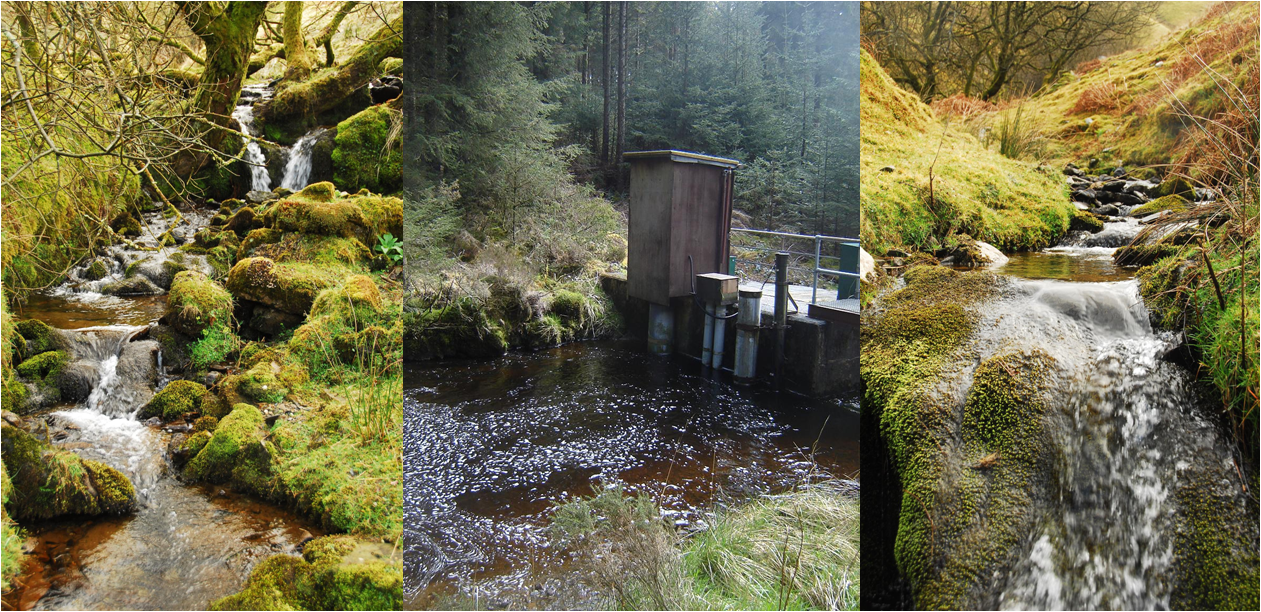Diversity in Upland Rivers for Ecosystem Service Sustainability - Lancaster
Project duration: 1st May 2012 to 30th June 2016 extended (outputs continuing)
Grant: NERC NE/J014826/1
Nick A Chappell (PI), Keith Beven, John Quinton, Ben Surridge, Wlodek Tych, Tim Jones (PDRA1), Ciaran Broderick (PRDA2) & Gloria Pereira (CEH-Lancaster)
With the UK's water valued at 200 billion pound per annum Britain's 389,000 km of river ecosystems are arguably our most important. In addition to providing water, they supply other major ecosystem services such as the regulation of flooding and water quality; support to adjacent ecosystems by supplying energy and nutrients; and large cultural value for charismatic organisms, recreation, and education.

However, the ways in which organisms and ecosystem functions maintain these services in rivers are extremely poorly understood. This is despite large ongoing effects on river organisms from changing catchment land use, and increasingly also from climate change. Cost implications are large and result, for example, from impacts on recreational fisheries, water treatment costs, and high value river biodiversity. By contrast, opportunities to use management positively to increase the ecosystem service value of rivers by enhancing beneficial in-river organisms have barely been considered.
In this project, we will focus on four examples of river ecosystem services chosen to be explicitly biodiversity-mediated:
1. the regulation of water quality
2. the regulation of decomposition
3. fisheries and recreational fishing, and
4. river birds as culturally valued biodiversity
Each is at risk from climate/land use change, illustrating their sensitivity to disturbance thresholds over different time scales. These services vary in attributable market values, and all require an integrated physical, biogeochemical, ecological and socio-economic science perspective that none of the project partners could deliver alone. Using river microbes, invertebrates, fish and river birds at levels of organisation from genes to food webs, we will test the overarching hypothesis that: biodiversity is central to the sustainable delivery of upland river ecosystem services under changing land-use and climate.
Specifically, DURESS-Lancaster and its partners will ask:
1. What is the range of services delivered by upland rivers, and which are biologically mediated?
2. What are the links between biodiversity (from genes to food webs) and service delivery?
3. How does river biodiversity affect the rate or resilience of ecosystem service delivery through time?
4. How do changes in catchment land use / management and climate affect river biota?
5. How should river biodiversity be managed to sustain ecosystem services?
At spatial scales ranging from small experimental catchments to the whole region, and at temporal scales from sub-annual to over three decades, the work will be carried out in upland Wales as a well-defined geographical area of the UK that is particularly rich in the spatially extensive and long-term data required for the project.
News
DURESS programme starts on 1st May 2012.
Online publication of first full DURESS journal paper on 7st April 2014.
Installation of EXO1 and EXO2 sondes in collaboration with Xylem Analytics UK on 8th April 2014.

